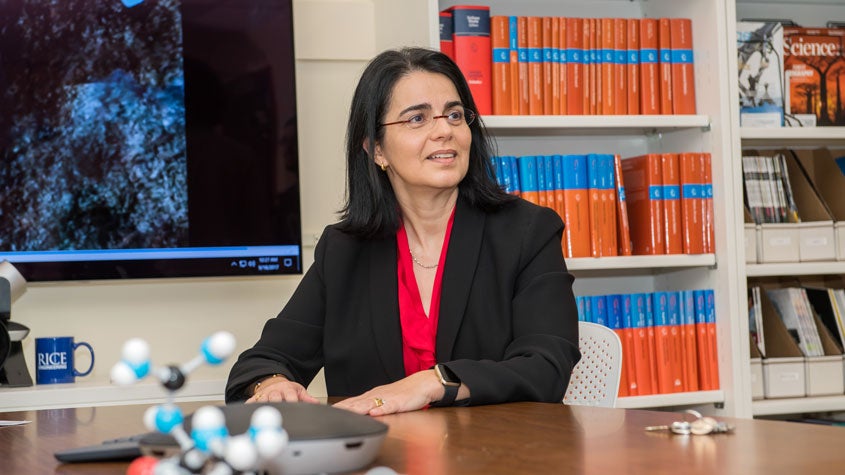Rice University computer scientist Lydia Kavraki has delivered a virtual plenary talk at the 2020 IEEE International Conference on Robotics and Automation.
Some 1,270 people attended Kavraki’s presentation, “Planning in Robotics and Beyond,” when it was streamed online June 2 and participated in the live question and answer session. Another 833 people have subsequently watched it.
The annual conference is the Institute of Electrical and Electronics Engineer’s Robotics and Automation Society’s largest and one of the leading international forums for robotics researchers to present their work. Originally the conference was scheduled to be held in Paris in early June. The COVID-19 pandemic forced the conference to go virtual.
The various time zones of the participants posed a challenge to the organizers who decide to run the conference from May 31 to August 31 to accommodate the registered participants.
“My talk addressed the role of motion planning in enabling robots to execute a variety of tasks in a variety of settings. Problem decomposition has been and remains a difficult task, and motion planning algorithms are today exploited for this purpose,” said Kavraki, the Noah Harding Professor of Computer Science, and professor of bioengineering, electrical and computer engineering, and mechanical engineering. Her group has made seminal contributions in motion planning in the last twenty years.
“Another critical step is to produce motion from high-level specifications,” she said. “The specifications declare what the robot must do, rather than how the task is to be done. In that realm, motion planning principles guide the development of new frameworks that integrate advances in logical reasoning and program synthesis.”
Kavraki also discussed how the knowledge gained from motion planning has applications in computational structural biology and the design of new therapeutics.
The other plenary speakers with Kavraki were Yann LeCun, vice president and chief AI scientist at Facebook and the 2018 Turing Award winner, who spoke on “Self-Supervised Learning and World Models”; and Jean-Paul Laumond, emeritus researcher at CNRS (Centre national de la recherche scientifique) and member of the French Academy of Sciences, whose talk was titled “Geometry of Robot Motion: from the Rolling Car to the Rolling Man.”
Author: PATRICK KURP

